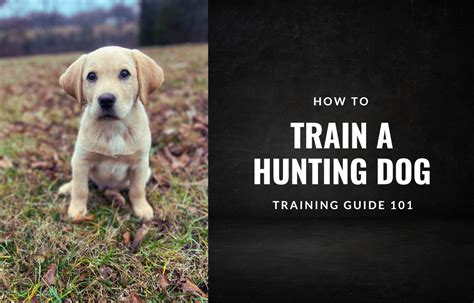Introduction
Dog hunting and retrieving training is a rewarding experience that can strengthen the bond between you and your furry companion. Training your dog to hunt and retrieve not only provides mental and physical stimulation but also opens up new opportunities for outdoor adventures and shared experiences.

The Benefits of Dog Hunting and Retrieving Training
Enhanced Bonding and Communication
Training your dog for hunting and retrieving requires consistent communication and teamwork. As you work together, you will develop a deeper understanding and trust in each other.
Mental and Physical Stimulation
Hunting and retrieving are physically and mentally demanding activities that provide essential exercise and stimulation for your dog. This helps prevent boredom and promotes overall well-being.
Outdoor Adventures and Companionship
Trained hunting and retrieving dogs make excellent companions for outdoor activities such as hunting, hiking, and camping. They enhance your experiences and provide companionship in nature.
How to Choose the Right Dog Breed
Selecting a Suitable Breed
Not all breeds are suited for hunting and retrieving. Consider the following factors when choosing a breed:
- Energy level and endurance
- Trainability and intelligence
- Natural hunting instincts
- Physical attributes (e.g., size, stamina)
Popular Hunting and Retrieving Breeds
- Labrador Retriever
- Golden Retriever
- German Shorthaired Pointer
- Brittany
- Weimaraner
The Basics of Dog Hunting and Retrieving Training
Basic Obedience Commands
Before starting hunting and retrieving training, establish a solid foundation of basic obedience commands:
- Sit
- Stay
- Come
- Heel
Introduction to Hunting and Retrieving
Start by introducing your dog to the basics of hunting and retrieving in a controlled environment. Gradually increase the distance and difficulty as your dog gains confidence.
Training Techniques
- Positive reinforcement: Reward your dog with treats, praise, or play for desired behaviors.
- Repetition and consistency: Practice exercises regularly to reinforce learning.
- Patience and persistence: Training takes time and effort. Avoid getting discouraged and stay patient with your dog.
Advanced Techniques for Dog Hunting and Retrieving Training
Scent Discrimination
Train your dog to differentiate between different scents, such as game birds, rabbits, and squirrels. This skill enhances their ability to track and retrieve prey.
Marking and Retrieving
Teach your dog to mark the location of fallen birds or prey and retrieve it on command. This is crucial for successful hunting expeditions.
Water Retrieving
If your dog will be hunting in water, train them to retrieve from both shallow and deep water. Use floating dummies or waterfowl to simulate real hunting scenarios.
Common Mistakes to Avoid in Dog Hunting and Retrieving Training
- Starting too early: Wait until your dog is at least 6-8 months old before formal training.
- Overtraining: Break down training sessions into shorter intervals to prevent overexertion or boredom.
- Using harsh methods: Punishment or physical force can damage the bond between you and your dog and hinder training.
- Ignoring safety: Always prioritize safety for you and your dog during training sessions.
Conclusion
Dog hunting and retrieving training is a rewarding and challenging journey that can provide numerous benefits for both you and your canine companion. With patience, consistency, and the right techniques, you can develop a skilled hunting and retrieving partner that will enhance your outdoor experiences for years to come.





















